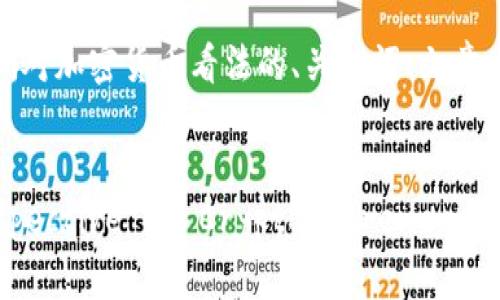好的,我将为您提供一个关于非洲对加密货币看
Introduction
Cryptocurrency has been a topic of significant discussion and interest globally, but its implications and acceptance vary widely across different regions. In Africa, cryptocurrency represents not just a technological advancement but also a potential game-changer in financial inclusion and economic development. This article delves into the unique perspective that African nations hold regarding cryptocurrency, highlighting both the opportunities it presents and the challenges that lie ahead.
Economic Context in Africa

Africa is home to over one billion people, many of whom are unbanked or underbanked. Traditional banking systems often fail to provide adequate services, especially in rural areas. As a result, there is a rising demand for alternative financial solutions. Cryptocurrencies, built on blockchain technology, offer a decentralized means of conducting transactions. They can provide access to financial services for those excluded from conventional banking, thus fostering greater financial inclusion.
Opportunities Provided by Cryptocurrency
Cryptocurrency presents an array of opportunities for countries in Africa:
- Financial Inclusion: Cryptocurrencies can empower individuals to perform transactions and access services without needing a bank account.
- Economic Growth: By attracting investment and fostering innovation, the cryptocurrency sector can spur economic development.
- Cross-border Transactions: With lower transaction fees and faster processing times, cryptocurrencies can simplify international remittances, which are a major source of income for many families in Africa.
- Job Creation: The cryptocurrency industry encompasses many aspects, from mining and trading to developing blockchain-based solutions, creating numerous job opportunities.
Challenges Facing Cryptocurrency Adoption in Africa

Despite the potential advantages, the growth of cryptocurrency in Africa is not without challenges:
- Regulatory Uncertainties: Many African governments are still developing regulatory frameworks for cryptocurrencies, leading to an uncertain market environment.
- Technological Barriers: Limited access to reliable internet and technology can hinder the widespread adoption of cryptocurrency.
- Security Concerns: The rising number of scams and hacking incidents poses a significant risk to potential users.
- Lack of Awareness: Many individuals are not familiar with how cryptocurrencies work, which can prevent them from engaging with this technology.
Case Studies of Cryptocurrency in Africa
Countries such as Nigeria, Ghana, and South Africa have seen burgeoning interest in cryptocurrencies. Nigeria, for example, has one of the highest rates of cryptocurrency adoption globally, driven largely by remittances and a young, tech-savvy population. Ghana is experimenting with a state-backed digital currency, while South Africa has a growing community of blockchain developers and startups.
Future of Cryptocurrency in Africa
Looking ahead, the future of cryptocurrency in Africa appears promising. As more governments begin to understand the value of digital currencies, we can expect better regulatory frameworks and more support for innovation in this sector.
Potential Questions About Cryptocurrency in Africa
1. How is cryptocurrency being used for remittances in Africa?
One of the most compelling use cases for cryptocurrency in Africa is its application in remittances. Many African countries rely heavily on remittance flows, which are often sent from individuals working abroad to their families back home. Traditional remittance services can be costly, with fees averaging around 7-10% of the total amount sent. Cryptocurrencies can significantly reduce these fees to mere fractions of a percent, making it a more appealing option for many individuals.
Additionally, the speed of transactions can be particularly beneficial. A typical international wire transfer can take several days, while cryptocurrency transactions are often settled within minutes, regardless of the geographical distance involved. These advantages have led to increased interest in platforms that facilitate cryptocurrency remittances.
2. What are the regulatory responses to cryptocurrency in Africa?
The regulatory landscape surrounding cryptocurrency in Africa varies significantly from country to country. Some nations, like Nigeria, have adopted a relatively open and supportive stance. In contrast, countries like Algeria and Morocco have implemented strict bans on cryptocurrency transactions. This varied response can create uncertainty for businesses and investors operating in this space, as they must navigate a complex patchwork of regulations.
Despite these challenges, there is a growing awareness among African governments of the potential benefits of regulating cryptocurrencies rather than outright banning them. Countries like South Africa have begun establishing regulatory frameworks that foster innovation while ensuring consumer protection and financial stability. This trend could pave the way for a more unified approach to cryptocurrency regulation across the continent.
3. What security risks are associated with cryptocurrency in Africa?
Security remains a significant concern for cryptocurrency users, particularly in Africa, where many are still learning about this new technology. Hacks, scams, and phishing attacks are prevalent issues that can undermine confidence in cryptocurrency. Financial literacy surrounding cryptocurrency is low in many regions, making users more susceptible to fraudulent schemes. As more individuals enter the cryptocurrency space, the incidence of these security risks may increase.
Efforts to enhance security measures are essential. This could involve raising awareness about best practices for securing cryptocurrency holdings, such as using hardware wallets and enabling two-factor authentication. Furthermore, governments and organizations can play a role by supporting initiatives aimed at fostering cybersecurity skills and building trust in this new financial ecosystem.
4. How can blockchain technology drive economic development in Africa?
Blockchain technology, the underlying framework for cryptocurrencies, holds vast potential for economic development in Africa. Its decentralized nature can enhance transparency, reduce corruption, and promote financial accountability across various sectors. For instance, blockchain can be utilized in supply chain management to track the origin of agricultural products, ensuring fair trading practices and combating fraud.
Furthermore, blockchain applications can support more efficient public service delivery, from land registries to digital identities. These applications can ultimately lead to better governance and stronger economic growth. As African nations increasingly adopt blockchain technology, they may find innovative ways to harness its capabilities to address pressing challenges.
5. What role can education play in promoting cryptocurrency adoption in Africa?
Education is pivotal in promoting cryptocurrency adoption across the African continent. Understanding how cryptocurrencies work, their benefits, and the underlying technology is crucial for encouraging responsible use. Educational initiatives can empower individuals to safely navigate the cryptocurrency landscape, minimizing security risks while maximizing benefits.
Various organizations and startups have begun offering workshops, webinars, and online courses to promote financial literacy and blockchain education. Additionally, collaborations between governments, educational institutions, and the private sector can create comprehensive programs that equip individuals with the necessary knowledge and skills to engage successfully with cryptocurrency. As awareness increases, a more informed public can lead to greater trust and widespread adoption of cryptocurrency throughout Africa.
Conclusion
The view of Africa towards cryptocurrency is multi-faceted, embodying both opportunities and challenges. While financial inclusion and economic growth remain key benefits, regulatory concerns and security risks also persist. As the cryptocurrency landscape continues to evolve, the potential for African nations to leverage this technology for economic development is significant. By fostering education, establishing supportive regulatory frameworks, and addressing security concerns, Africa may well become a leader in the global cryptocurrency movement.
希望这个框架和内容能对您有所帮助。请根据您的需要调整和扩展每个部分。